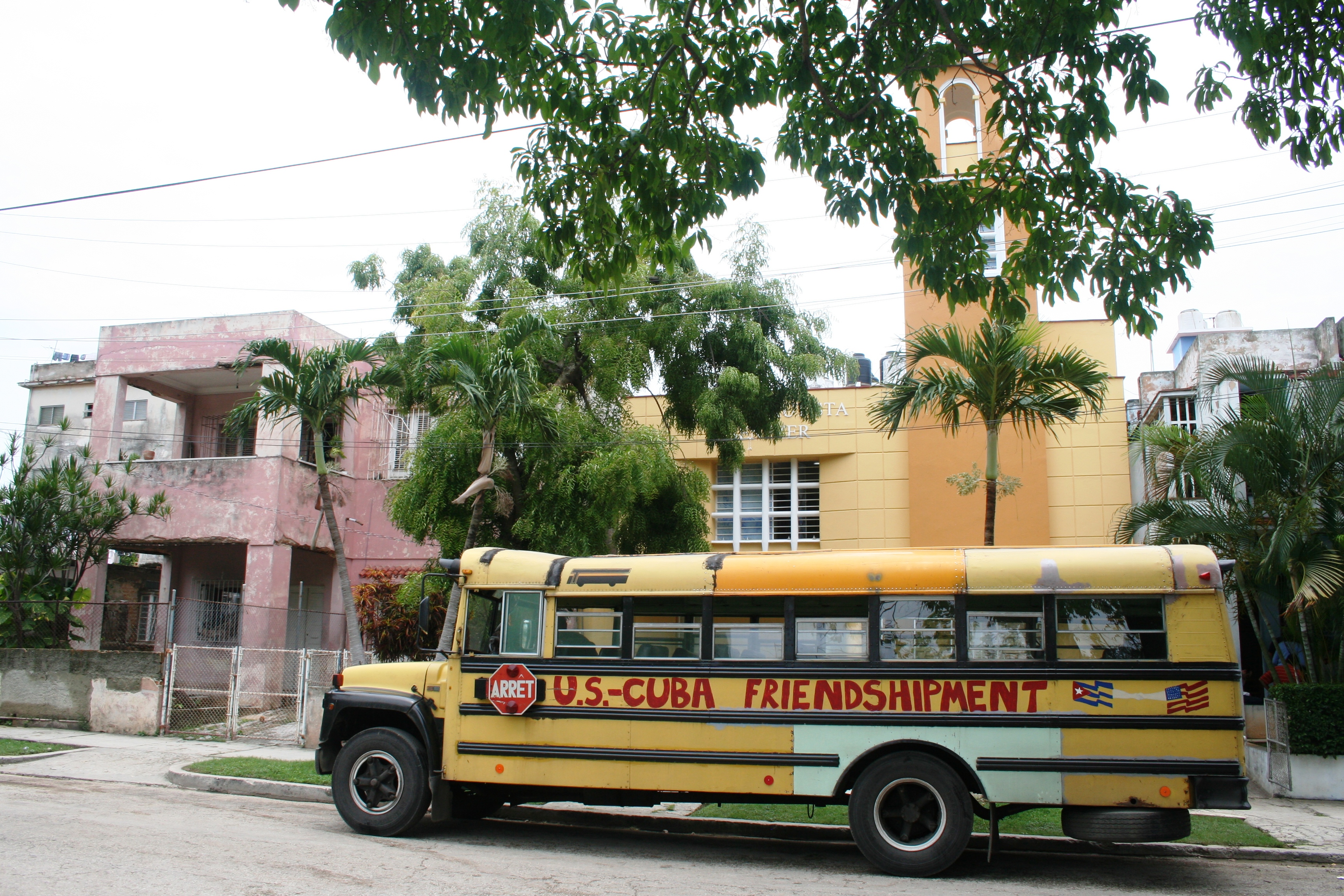
You will encounter a reality in Cuba unlike anything you have experienced.The total absence of commercial advertisements, the existence of mass organizations structured by the State, a continually evolving socialist revolution that includes free health care and education (imagine no student loans!), lack of ready access to many consumer goods, strong communities and tight family structures – all these things and many more will quickly turn your world upside down. The social, political and historical realities in Cuba generate many questions and challenge pre-conceived notions. You will quickly move outside your comfort zone, providing the perfect conditions for a unique and rewarding educational experience supported through a constructively critical analysis of Cuba's ongoing revolution.
This program is led by Dr. Tom Hansen, adjunct faculty member, in conjunction with the Martin Luther King Jr., Center in Havana, an organization dedicated to community development and national and international politics. The Martin Luther King, Jr. Center assists with critical program logistics such as the coordination of home-stays and the arrangement of excursions.
Learn from some of Cuba's leading intellectuals, political figures and cultural icons. The program includes academic classes combined with experiential learning and cultural experiences.
Visiting faculty member Dr. Thomas Hansen is the program director. He has coordinated educational abroad programs for more than 20 years and has served as a group leader for more than 3,000 participants; many of these programs took place in Cuba. Dr. Hansen will work closely with the Martin Luther King, Jr. Center and Guilford to ensure academic integrity and a positive living/learning environment for students.
Academics
Courses are either taught by Dr. Hansen or professors from the University of Havana, with oversight by Dr. Hansen.
Students enroll in the following four courses, which are integrated into a modular system that utilizes an interdisciplinary pedagogy combining theoretical classes with workshops and experiential learning.
Cuban Politics
60 hours. 4 credits.
Analysis of the Cuban State, how it is organized, how it functions, and the role of the Cuban Communist Party, including a critical discussion of the role of Cuban society in politics and decision-making. The course covers a theoretical and practical introduction to Marxism and how Marxism plays out in Cuban reality. The course also covers current US-Cuba relations. Workshops with social actors and academics compliment formal classes.
History of Cuba
60 class hours. 4 credits.
Overview of Cuban history, including colonization, independence struggles, the 1959 revolution, the social impacts of the revolution, and the special period, with particular emphasis on US-Cuba relations as they developed through the centuries. Students will be able to situate an analysis of contemporary Cuba within an historical context. Workshops, meetings and museum visits compliment formal academic classes.
Cuba Today
60 class hours, 4 credits.
Investigation of Cuban society today, including race and gender dynamics, youth, the arts, non-governmental organizations, and state-organized federations. Students develop a complex analysis of the various institutions, identities and relationships that form Cuban society, situating their analysis in a rich web of government institutions, state-organized mass organizations, cultures, beliefs and practices. Special attention is given to the intersection of race, gender and class in contemporary Cuban society.
One of Three Spanish Courses
60 class hours. 4 credits.
Intermediate Spanish I
Intermediate Spanish 2
Conversation in Cultural Context (advanced)
Independent Studies
60 hours, 4 credits.
Content and methodology to be approved in advance by a Guilford College independent study sponsor/advisor. Students who are native Spanish speakers and who would not benefit from Spanish language classes may substitute independent study for Spanish language classes.
Housing
Housing is arranged by the program. Students live with families in Marianao who are associated with the Martin Luther King Memorial Center. Marianao is located on the southwest side of Havana, about 20 minutes from the city center. It is a popular barrio with a large Afro-Cuban population. Families are carefully screened by the MLK Center, perhaps Cuba’s most important non-governmental organization with a 25 year history of work in Marianao and throughout the island. Home stays provide students with a unique opportunity to learn firsthand from Cuban families while also improving their Spanish. Breakfast is eaten with families, while lunch and dinner are prepared at the MLK Center.
Costs
The basic cost of the semester in Cuba, either fall or spring semester, will be the equivalent of a full residential semester at Guilford with a meal plan. This includes room, board, tuition, and fees, and on-site assistance from the MLK Center. Additional costs include airfare, passport, visa and insurance extensions for the final 60 days while in Havana ($180), airport exit tax ($30), and additional personal expenses.
.png)
